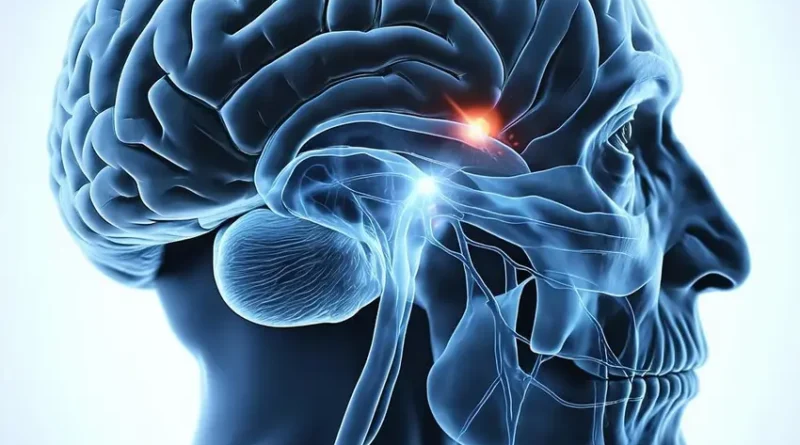Understanding Diseases Without Cures: A Focus on Chronically Debilitating Conditions
Throughout history, medicine has made remarkable strides in treating ailments, but some diseases remain stubbornly elusive to cures. While advancements have improved management, understanding the diseases that currently have no known cure is essential for patients, families, and healthcare professionals alike. This blog explores several incurable diseases, shedding light on their implications, current treatment options, and ongoing research aimed at better understanding and managing these conditions.
1. Alzheimer’s Disease
Alzheimer’s Disease is the most common form of dementia, affecting millions globally. Characterized by cognitive decline, memory loss, and behavioral changes, Alzheimer’s is currently considered incurable. Research continues to unravel its complex biology, with studies focusing on amyloid plaques and tau proteins, the hallmarks of the disease. Current treatments can temporarily alleviate symptoms but do not halt disease progression.
Ongoing clinical trials are exploring new therapies that target disease mechanisms. Approaches such as immunotherapy and gene therapy are in the pipeline, while lifestyle interventions, including cognitive engagement and physical activities, may have potential to delay onset and progression.
2. HIV/AIDS
Despite significant progress in antiretroviral therapies, HIV/AIDS has no cure. HIV attacks the immune system and can lead to AIDS, the final stage of HIV infection where the body becomes susceptible to opportunistic infections and cancers. While daily medication can keep the virus undetectable, enabling patients to lead normal lives, the virus can remain dormant in reservoirs throughout the body.
Research into HIV vaccines and long-acting treatments continues, aiming to eventually achieve a functional or sterilizing cure. Recent breakthroughs involving gene editing technologies like CRISPR are gaining attention for their potential to eradicate HIV from infected cells.
3. Type 1 Diabetes
Type 1 diabetes (T1D), an autoimmune condition, occurs when the body’s immune system attacks insulin-producing pancreatic cells. Lifelong daily insulin administration is required for survival, as there is no cure. Management involves monitoring blood sugar levels and dietary adjustments.
Innovative research is being conducted on several fronts, including immunotherapy that targets the autoimmune response and advancements in artificial pancreas systems to provide more precise insulin delivery. Researchers are also exploring the potential of stem cell therapies to regenerate pancreatic beta cells.
4. Cystic Fibrosis
Cystic fibrosis (CF) is a genetic disorder affecting the respiratory and digestive systems, resulting in mucus buildup that leads to severe lung infections and digestive problems. While current treatments can improve quality of life and longevity, CF remains incurable.
Recent advancements in medications that target the underlying genetic mutations (such as CFTR modulators) have transformed the prognosis for many. Additionally, gene therapy is being investigated to address the root cause of the disease at the genetic level.
5. Huntington’s Disease
Huntington’s disease is a hereditary neurodegenerative disorder resulting in movement, cognitive, and psychiatric disorders. Symptoms usually emerge in mid-adulthood, and there is no cure. Current treatments focus on symptom management rather than halting disease progression.
Research into disease-modifying therapies explores RNA-targeting strategies to inhibit the production of the mutant huntingtin protein responsible for the disease. Trials studying gene silencing are also underway, aimed at reducing the expression of the mutant gene.
6. Multiple Sclerosis
Multiple Sclerosis (MS) is a chronic autoimmune disorder that affects the central nervous system, leading to a range of debilitating symptoms. While there is no cure, several disease-modifying therapies can significantly reduce the frequency and severity of relapses.
Research is ongoing into neuroprotective strategies to prevent the degeneration of nerve cells and a better understanding of the disease’s underlying mechanisms. Investigations on the gut microbiome’s role in MS are also gaining traction as potential therapeutic avenues.
7. Psoriasis
Psoriasis is a chronic skin condition characterized by red, scaly patches. It is often triggered by stress, infections, or certain medications. While it can be controlled with topical treatments, systemic medications, and biologic drugs, it has no definitive cure.
Advancements in targeting specific immune pathways have led to effective treatments that can significantly improve symptoms. Research continues into new therapeutic options that further enhance patient care and quality of life.
In summary, while the quest for cures for these diseases continues, there is hope through ongoing research and innovative treatment methodologies. Understanding these conditions allows for better patient care and support. As advancements in science and technology progress, we may inch closer to finding cures, but until then, management and research will remain vital components in the lives affected by these challenging diseases.

